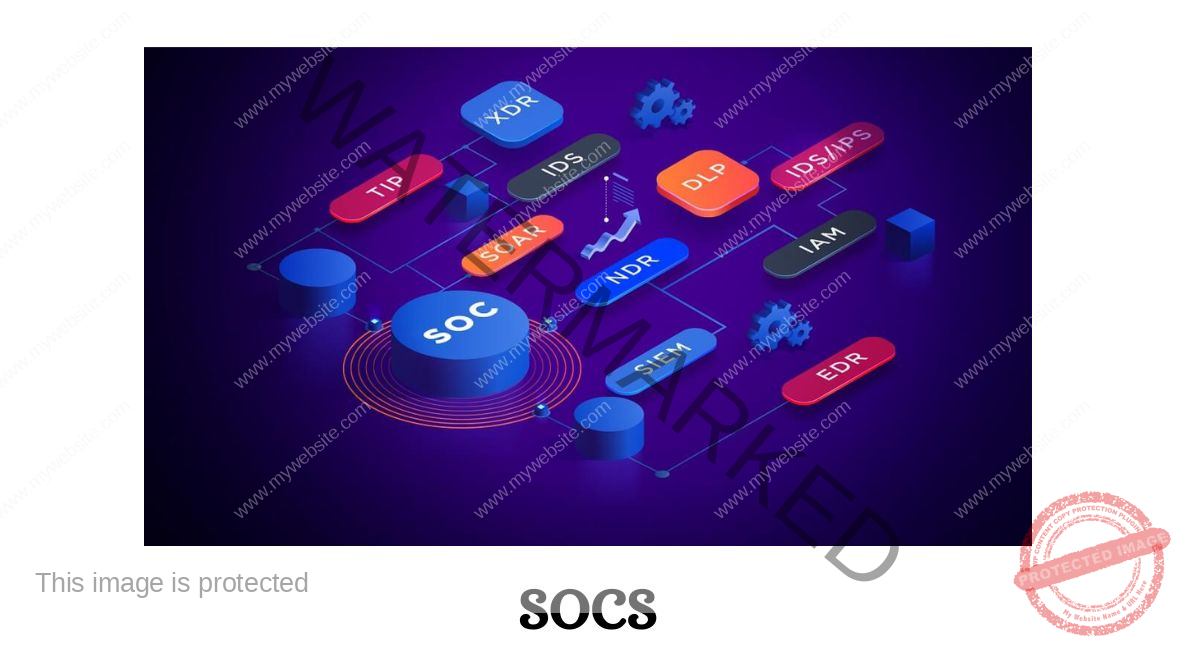In the demanding world of healthcare, emergency response, and customer service, effective on-call scheduling can make or break operational efficiency. That’s where SOCS (Smart On-Call Scheduling Systems) come into play. Whether you are managing a hospital, IT support department, or service-oriented business, mastering SOCS can reduce burnout, improve response times, and ensure seamless team coordination.
What is SOCS (Smart On-Call Scheduling System)?
SOCS, or Smart On-Call Scheduling Systems, are automated tools designed to manage rotating schedules, duty rosters, and emergency response plans with real-time flexibility. These systems are built to tackle complex scheduling needs, accounting for staff availability, skill sets, compliance regulations, and fair work distribution.
Unlike traditional manual scheduling or spreadsheets, SOCS use algorithms and real-time data to ensure optimized shift allocation, rapid adjustments, and instant communication.
Key Features of Advanced SOCS Tools
1. AI-Powered Scheduling Automation
Modern SOCS platforms leverage artificial intelligence to automate shift planning. AI factors in employee preferences, leave calendars, regulatory constraints, and fatigue management protocols to produce balanced and legally compliant schedules in minutes.
2. Real-Time Notifications and Alerts
Smart scheduling means being proactive, not reactive. SOCS systems can instantly send SMS, email, or app notifications when:
-
A staff member is assigned an on-call shift
-
A change in the roster occurs
-
A critical alert needs immediate attention
3. Integration with Calendar and Communication Tools
Top-tier SOCS tools seamlessly integrate with:
-
Google Calendar / Microsoft Outlook
-
Slack, Teams, or WhatsApp
-
HRM and Payroll systems
This ensures smooth syncing of schedules, eliminating double bookings and miscommunication.
4. Mobile Access and Cloud Functionality
With remote teams and 24/7 demands, SOCS systems are often cloud-based and mobile-friendly, giving staff access to their schedules anytime, anywhere. Push notifications ensure team members never miss critical updates.
Benefits of Implementing SOCS in Your Organization
1. Enhanced Workforce Efficiency
By automating scheduling tasks, SOCS free up hours of manual work. This allows team leaders and HR to focus on more strategic activities while maintaining 100% scheduling accuracy.
2. Improved Work-Life Balance
SOCS tools factor in employee workload, previous shifts, and rest periods, reducing the chances of overburdening any one individual. This enhances employee satisfaction and reduces burnout.
3. Compliance with Labor Laws and Industry Regulations
Industries like healthcare and logistics are heavily regulated. SOCS ensure your on-call policies remain compliant with local labor laws, including:
-
Mandatory rest between shifts
-
Maximum weekly working hours
-
On-call compensation guidelines
4. Minimized Response Time
For emergency and IT support teams, every second counts. With SOCS, the right person is always scheduled and reachable, drastically reducing delays during high-stress scenarios.
Industries that Benefit from SOCS
Healthcare & Hospitals
Nurses, doctors, and specialists often operate on tight and rotating schedules. SOCS ensures:
-
24/7 on-call coverage
-
Minimum fatigue risk
-
Automatic coverage during emergencies
IT Support & DevOps Teams
SOCS automatically rotates duties between support engineers and DevOps staff, ensuring:
-
No one gets burned out
-
Alerts go to the right team members
-
Faster ticket resolution
Emergency Services (Fire, Police, EMT)
Real-time alerts, fair shift rotation, and instant communication channels make SOCS invaluable for:
-
Crisis management
-
Disaster response
-
Coordinating volunteer responders
Customer Support Centers
SOCS helps contact centers cover peak hours, night shifts, and global time zones without overstaffing or missed service windows.
Top SOCS Platforms in 2025
| Platform | Best For | Key Features | Pricing |
|---|---|---|---|
| PagerDuty | IT & DevOps | Incident response, scheduling, escalation policies | Starts at $21/user/month |
| When I Work | Healthcare & Shift Work | Schedule building, mobile app, time tracking | Free for up to 75 users |
| Opsgenie | DevOps & ITSM | On-call management, alerts, integrations | From $9/user/month |
| Shiftboard | Enterprise Workforce | Labor compliance, shift bidding, analytics | Custom pricing |
| Deputy | Customer Service Teams | Roster planning, payroll sync, mobile access | From $3.50/user/month |
Challenges and Solutions with SOCS Implementation
Challenge 1: Resistance to Change
Solution: Provide training and user onboarding, showing employees how SOCS reduce workload and improve fairness.
Challenge 2: Integration Complexity
Solution: Choose SOCS tools with open API access and prebuilt integrations for smooth syncing with HR, CRM, and payroll systems.
Challenge 3: Inflexibility in Real-Time Changes
Solution: Opt for platforms with mobile app support, enabling supervisors to update schedules in real-time and notify the team instantly.
Tips for Choosing the Right SOCS for Your Team
-
Evaluate Use Cases: Understand your industry’s shift structure, emergency protocols, and team sizes.
-
Prioritize Ease of Use: A simple UI and mobile accessibility are critical.
-
Ensure Data Security: Choose platforms that comply with GDPR, HIPAA, and offer role-based access control.
-
Look for Custom Reporting: Analytics can uncover scheduling bottlenecks and employee fatigue patterns.
-
Check Support Availability: 24/7 customer support is essential, especially during the initial setup.
Future of Smart On-Call Scheduling Systems
The evolution of SOCS is set to revolutionize workforce management. With machine learning, predictive analytics, and natural language processing, future systems will:
-
Predict demand and adjust schedules automatically
-
Recommend optimal shift rotations based on historical performance
-
Use AI chatbots for schedule management and employee queries
Cloud-native, AI-infused SOCS platforms will soon be the backbone of operational efficiency in every shift-driven business.
Conclusion
Implementing a Smart On-Call Scheduling System (SOCS) is no longer a luxury—it’s a necessity. It enhances efficiency, ensures compliance, empowers employees, and improves service quality across industries. As organizations become more dynamic and demand agility, SOCS offers the precision and flexibility needed to thrive.
FAQs About SOCS (Smart On-Call Scheduling Systems)
Q1: What does SOCS stand for?
A: SOCS stands for Smart On-Call Scheduling Systems, which are software tools used to manage, automate, and optimize shift-based and on-call schedules across various industries.
Q2: Who needs a SOCS system?
A: SOCS systems are essential for organizations with 24/7 operations or rotating shifts, such as hospitals, IT support teams, emergency responders, call centers, and logistics companies.
Q3: How is SOCS different from traditional scheduling?
A: Unlike spreadsheets or manual planning, SOCS uses automation, AI, and real-time communication to ensure accurate, fair, and fast schedule management. It also adapts quickly to last-minute changes.
Q4: Can SOCS help prevent employee burnout?
A: Yes. SOCS considers workload balance, rest periods, and past shift history to avoid overworking employees, promoting better work-life balance and mental well-being.
Q5: Is SOCS customizable for different industries?
A: Absolutely. Most SOCS platforms offer industry-specific templates and customizable features that align with the unique compliance requirements and workflows of healthcare, IT, emergency services, and more.
Q6: Does SOCS require technical expertise to use?
A: No. Leading SOCS platforms are designed with user-friendly interfaces and offer training and support, making them accessible even for non-technical users like HR staff or shift supervisors.
Q7: Can SOCS integrate with our current systems?
A: Yes. SOCS can integrate with calendar apps (Google, Outlook), communication platforms (Slack, Teams), payroll software, and HR systems for seamless operations.
Q8: Is mobile access available in SOCS tools?
A: Yes. Most SOCS platforms provide mobile apps for iOS and Android, allowing staff to view, swap, or get notified about shifts anytime, anywhere.
Q9: How secure is SOCS data?
A: SOCS platforms follow strict data protection standards, including GDPR, HIPAA, and encryption protocols. Always choose tools with role-based access controls for added security.
Q10: How do I choose the right SOCS platform?
A: Consider your team size, industry, compliance needs, ease of use, integration requirements, and budget. Look for platforms offering free trials or demos before committing.

